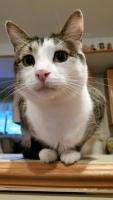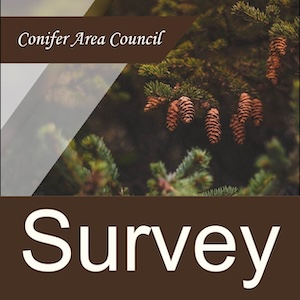- Posts: 664
- Thank you received: 0
Happy New Year
- ShilohLady
-
 Topic Author
Topic Author
- Mountain Legend
-

This is an awesome video:
[youtube:uy53cw6o][/youtube:uy53cw6o]
Please Log in or Create an account to join the conversation.
- pacamom
-

- Mountain Legend
-

- Posts: 2573
- Thank you received: 33
Please Log in or Create an account to join the conversation.
- ZHawke
-

- Visitor
-

Please Log in or Create an account to join the conversation.
- jf1acai
-

- Mountain Legend
-

Experience enables you to recognize a mistake when you make it again - Jeanne Pincha-Tulley
Comprehensive is Latin for there is lots of bad stuff in it - Trey Gowdy
Please Log in or Create an account to join the conversation.
- ScienceChic
-

- Mountain Champion
-

- Posts: 15746
- Thank you received: 320
It's been an amazing year, I am excited beyond words (well, maybe not!)
Have a safe and joyous celebration tonight!
Some fun and educational stories for you for the holiday season:
www.livescience.com/17688-years-hidden-weaknesses.html
The New Year's Resolution We Should Be Making
Stephanie Pappas
30 December 2011
We all know that popular New Year's resolutions involve dieting, exercise and the nixing of bad habits. But what if we could fix things we didn't even know were wrong with us?
In our best New Year's fashion, we asked social scientists to tell us what they see as the worst hidden weaknesses of humans — and whether there's anything we can do to overcome them. Their responses suggest that this year, we should all resolve to see things from others' perspectives.
lifehacker.com/5872232/top-10-easy+to+ke...ns-for-this-new-year
Top 10 Easy-to-Keep Resolutions for This New Year
By Whitson Gordon
Dec 31, 2011
We've shared a number of tips on how to make lasting resolutions during the new year, but if you're at a loss for good resolutions this year, here are some good ones that are surprisingly easy to keep.
www.myhealthnewsdaily.com/2048-years-res...changing-habits.html
Wrong Resolutions: 5 Tips for Finally Changing Your Habits
Dec 27, 2011 | 8:23 AM ET | Maureen Salamon
But laudable as it may be, setting specific goals isn't the way to go, experts say. For a better shot at succeeding, we need instead to change our habits – defined as recurrent, often unconscious patterns of behavior that we frequently repeat.
"It's definitely better to create what I call process goals, rather than outcome goals," said Art Markman, a professor of psychology and marketing at University of Texas at Austin and author of the upcoming book, "Smart Thinking: Three Essential Keys to Solve Problems, Innovate and Get Things Done" (Penguin Group, 2012.
www.marcandangel.com/2011/12/11/30-thing...p-doing-to-yourself/
30 Things to Stop Doing to Yourself
December 11th, 2011
by Marc
www.livescience.com/17661-champagne-facts-infographic.html
Champagne Facts for the New Year (Infographic)
by Ross Toro
29 December 2011
There's lots more than alcohol and New Year cheer inside your flute of champagne. Bubble-y science abounds.
For instance, scientists have found that to get the most fizz out of your champagne, you should hold the glass at an angle while you fill it, rather than pouring the champagne straight down.
And those bubbles do more than pop in your mouth. Research reported in the fall of 2009 in the journal Proceedings of the National Academy of Sciences, revealed the 10 million or so bubbles that pop from a glass of the sparkling wine carry loads of aromatic molecules that ultimately spray into the air right under your nose.
lifehacker.com/5871932/how-to-survive-th...ils-of-new-years-eve
How to Survive the Perils of New Year’s Eve
By Whitson Gordon
Dec 29, 2011
Here are a few things you can do now to stay safe and sane this New Year's:
Install a "Find My Phone" App Just In Case
Hail a Cab or Find a Hotel, Wherever You Are
Get a Traffic-Aware Navigation App to Avoid Drunk Drivers
Get Rid of That Hangover on January 1st
In short: drink water, eat breakfast, and try to stay away from coffee, more alcohol, and painkillers like you may have been taught.
www.livescience.com/17680-hangover-cures-holiday-partier.html
Start the New Year Clearheaded: Tips to Avoid Hangovers
Jennifer Welsh
Date: 30 December 2011
if you do indulge in the bubbly this weekend, here are some scientific tips to avoid a miserable New Year's day.
Research into hangover cures has shown there are only a few true-blue tricks, including drinking water and taking vitamins. But researchers are making headway into understanding how alcohol, and its resulting hangover, affect our brains and bodies.
:fireworks4: :fireworks4: :fireworks4:
"Now, more than ever, the illusions of division threaten our very existence. We all know the truth: more connects us than separates us. But in times of crisis the wise build bridges, while the foolish build barriers. We must find a way to look after one another as if we were one single tribe.” -King T'Challa, Black Panther
The truth is incontrovertible. Malice may attack it. ignorance may deride it, but in the end, there it is. ~Winston Churchill
Please Log in or Create an account to join the conversation.
- CC
-

- Mountain Legend
-

- Posts: 8031
- Thank you received: 12
Here's to a wonderful healthy, prosperous Happy New year.
285bound.com has truly been the best part of 2011.
Please Log in or Create an account to join the conversation.
- MoCat
-

- Mountain Advisor
-

- Posts: 216
- Thank you received: 5
Please Log in or Create an account to join the conversation.
- coniferchambercommerce
-

- Mountain Legend
-

25997 Conifer Road, Unit D4, Conifer - 2nd floor, east side.
(Mailing address: PO Box 127, Conifer, CO 80433)
303-838-5711
www.goconifer.com
www.facebook.com/ConiferAreaChamberofCommerce
twitter.com/ConiferChamber
Monthly Breakfast Meeting every 2nd Friday of the month. Doors open at 7:15am. Please join us! Register in advance at GoConifer.Com
Please Log in or Create an account to join the conversation.
- CapKazoo
-

- Happy Camper
-

- Posts: 51
- Thank you received: 1
Charles Dickens, A Tale of Two Cities
Thank you 2011 for giving me more good than bad.
Happy New Year to all. Wishing you all the best in 2012!
God Bless Our Soldiers
Never underestimate the power of a hissy fit.
Please Log in or Create an account to join the conversation.







